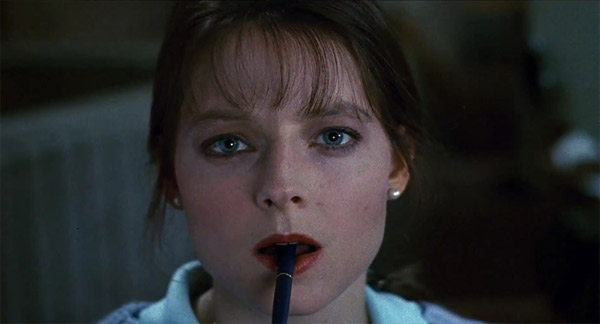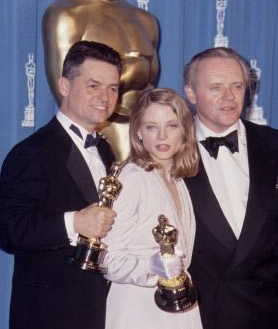 Editor's Note: in this new series we're exploring Oscar nominated or Oscar winning contributions to the horror genre to get you in the right mood for Halloween. For this edition I've invited first time contributor Mayukh Sen, to offer up his provocative thoughts on an Oscar winner -Nathaniel.
Editor's Note: in this new series we're exploring Oscar nominated or Oscar winning contributions to the horror genre to get you in the right mood for Halloween. For this edition I've invited first time contributor Mayukh Sen, to offer up his provocative thoughts on an Oscar winner -Nathaniel.
Here lies... Jonathan Demme's early career. There was a time when he was the most promising young American director of his time. But we lost all his potential the minute he won his Oscar for The Silence of the Lambs (1991).
Demme was a humanist in an era that desperately needed one. He loved people, and he possessed grace, sensitivity, and a lack of condescension toward his working-class characters. Kind of like McCarey or Renoir, he had a way of illuminating human flaws and virtues without passing judgment and was capable of expressing patience -- talents many directors lack. Demme's universe seemed unhinged by the good-evil binary that pervades how many artists render America's lower- middle class. He refused to make human idiosyncrasies seem foolish or naive.
Around the time of Lambs, though, Demme lost one of his salient characteristics – lightness of touch. Demme seems conscious of the fact that he is directing a “thriller”, and thus that he must downplay his sometimes offbeat, pop art-influenced aesthetic impulses for us to digest the narrative’s direness. And, though he does still demonstrate considerable compassion for his characters, Demme seems more interested in asserting Clarice Starling's singular heroism than probing the moral ambiguities of the other characters.

This may seem like a petty complaint, but watch some of his earlier works – Caged Heat, Last Embrace – and you’ll understand what exactly we're missing from the old Demme. Pauline Kael, one of Demme's earliest champions, said it best when she criticized Lambs for treating pulp as art. She was right -- there’s nothing urgent or passionate about it.
This has happened with many directors. Post-Last Tango, Bertolucci never achieved the sensuality that characterized Before the Revolution or The Conformist. Success brought upon more ambition, and the intimacy of his earlier work was lost.
 A part of me will always remember Lambs as the point at which Demme jumped the shark. Though Lambs is effective and, at times, fascinating, it doesn't have the charge of early Demme. At best, his subsequent films function on the level of interesting failures. I’m afraid that Demme's school of satiric humanism is unlike anything we'll ever see from him again, and I attribute this to his acceptance at the hands of the Hollywood elite.
A part of me will always remember Lambs as the point at which Demme jumped the shark. Though Lambs is effective and, at times, fascinating, it doesn't have the charge of early Demme. At best, his subsequent films function on the level of interesting failures. I’m afraid that Demme's school of satiric humanism is unlike anything we'll ever see from him again, and I attribute this to his acceptance at the hands of the Hollywood elite.
16 More Oscar Horrors
From The Exorcist through the Fly and on to What Ever Happened to Baby Jane...